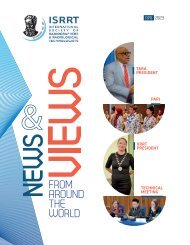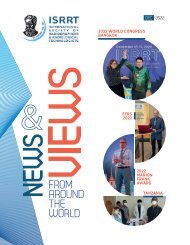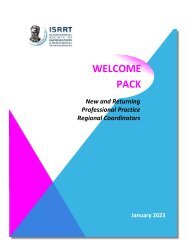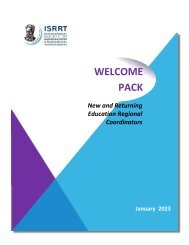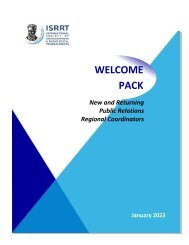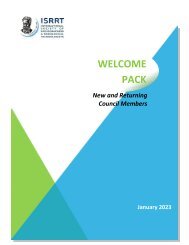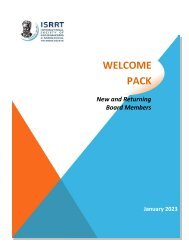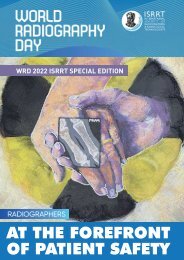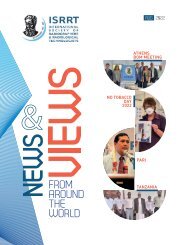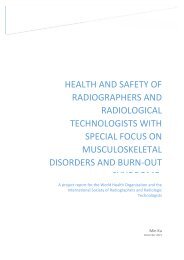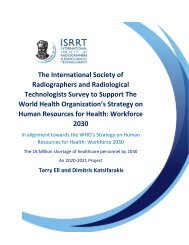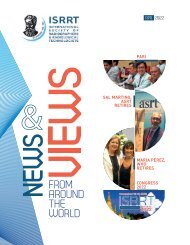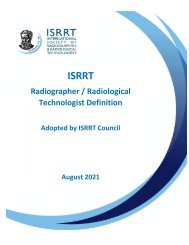ISRRT_COVID-19_book
Create successful ePaper yourself
Turn your PDF publications into a flip-book with our unique Google optimized e-Paper software.
learning is initiated. Some students may even spearhead group online discussions with their<br />
peers or groupmates or conduct tutorials among their respective class groups or peers.<br />
Though it seems online learning promotes independent learning, the learning environment<br />
would not be effective if internet connectivity is impaired. Other issues may arise when the<br />
medium to which the online instruction delivery is too dependent on internet connectivity<br />
available. A moral code in the academe – academic integrity, must be upheld. Everyone is<br />
always expected to be honest, fair, and truthful in every endeavor in building the necessary<br />
skills and competencies, and be reflected in the daily operations and transactions. Academic<br />
integrity issue also arises in the online setup since much of the information needed by the<br />
students to learn can be almost searchable over the internet.<br />
Common infractions committed include plagiarism and other forms of academic fraud.<br />
Despite the known issues, there are safeguards that we implement to avoid a breach in the<br />
academic integrity of the examinations, and other outputs the students are expected to<br />
deliver. First of which, we subject the student output to plagiarism scanning applications; we<br />
ask them for proper citations and referencing; and as an institutional mandate, we ask them<br />
to always adhere to our University Code of Honor so that they observe the core value of<br />
integrity in everything that they do.<br />
In conclusion, our educators have acknowledged the values and challenges of the flexible,<br />
distant, online mode of instruction delivery, may it be as an alternative for emergencies or<br />
long-term implementation. This will help so that they may appropriately plan, organize, and<br />
direct the administration of instruction to the learning needs of students, considering the<br />
demands and challenges unveiled. Being proactive and creative are the qualities and skills<br />
that we need to master, for us to think of programs, services, and processes to efficiently<br />
deliver the quality education that the students deserve, even amidst a global crisis. While we<br />
expect the worst scenarios to come and disrupt our current practices, we need to still<br />
continuously plan for the best possible solutions to help our students achieve the learning<br />
outcomes in the most appropriate means during prevailing situations – whether there are<br />
exceptional (during the pandemic) or in more normal times. There are pieces of literature to<br />
search for as a reference in extracting the most applicable approach to our context, and a lot<br />
of learning from our experiences. These come, both from educators’ and students’<br />
106




